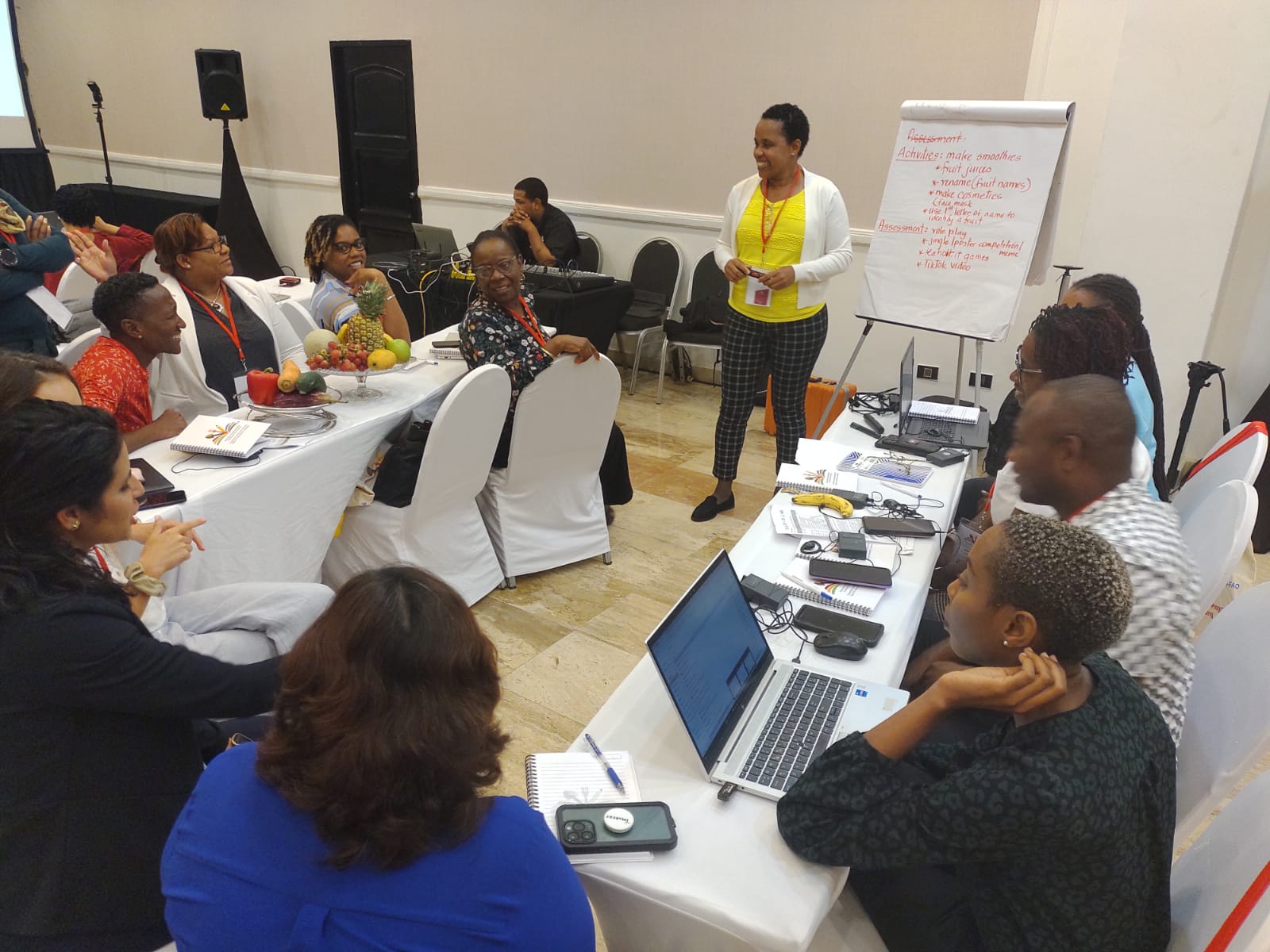Activity in the country strengthened the capacities of managers and technicians of the school feeding policy in the Caribbean
Paulo Beraldo and Palova Brito
Santo Domingo, March 21, 2023 – The project Consolidation of School Feeding Programmes in Latin America and the Caribbean, developed within the framework of the Brazil-FAO International Cooperation, carried out the second phase of the School Feeding Course entitled “School Feeding Programmes and Food and Nutrition Education”.
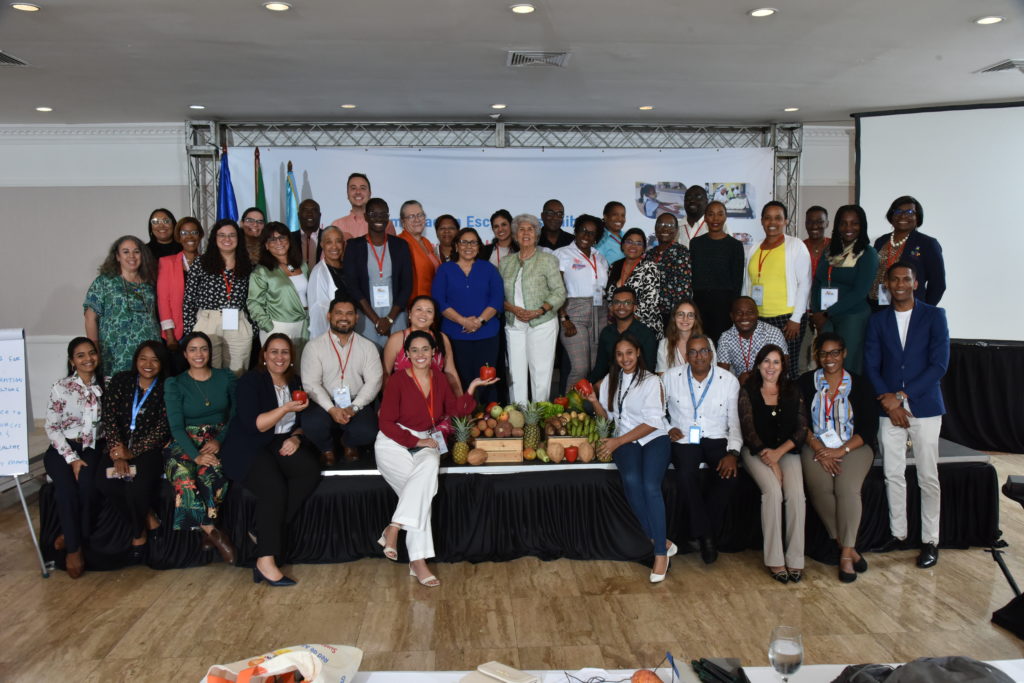
The action took place in the Dominican Republic, between March 13 and 17, and was developed within the framework of the Brazil-FAO International Cooperation Programme, through the Brazilian Cooperation Agency (ABC/MRE), the National Fund for Educational Development (FNDE/MEC) and the Food and Agriculture Organization of the United Nations (FAO), through the regional project Consolidation of School Feeding Programmes in LAC.
The first part of the course was held in 2020. In the second stage of the course, the topics debated were: (i) importance of universal service for students enrolled in public schools, (ii) acquisition of food produced locally and preferably by family farmers, (iii) inclusion of educational actions, (iv) food and nutrition in the teaching and learning process and (iv) the importance of good practices in food handling. The participating countries were Belize, Brazil, Bahamas, Chile, Guyana, Jamaica, Saint Lucia, Saint Kitts and Nevis, Saint Vincent and the Grenadines, and Trinidad and Tobago.
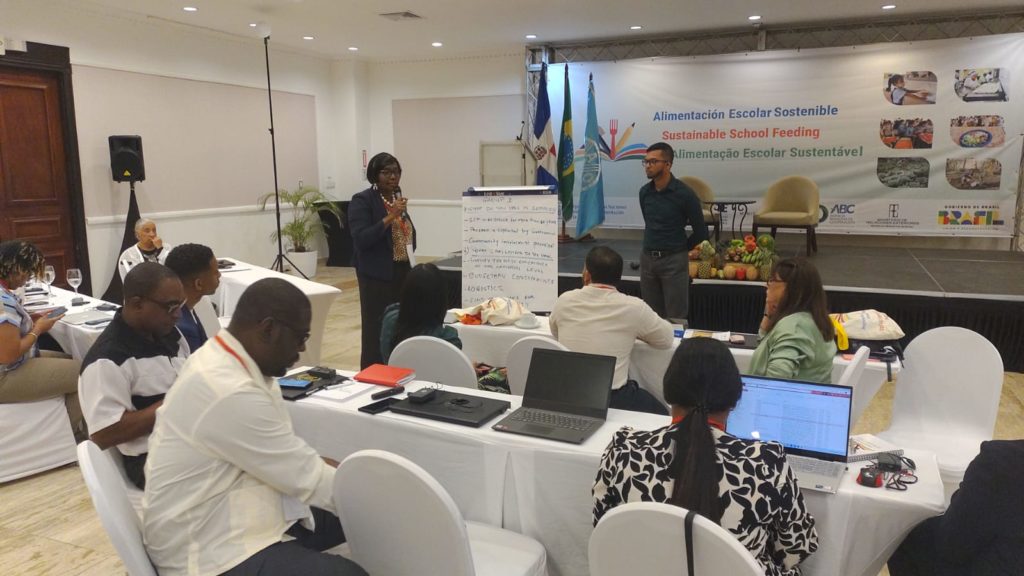
For Gabryela Ayon Chang, who was the facilitator of the course, the event, in addition to being a space for theoretical and experiential learning, meant a meeting among the Caribbean countries that are working in favor of school feeding. “Being able to share good experiences and think about joint solutions was enriching for all the participants and also created beneficial working relationships to continue this work.”
Throughout the week, the participants also went to the field and visited the educational centers La Hora de Dios, in Santo Domingo Oeste, and Mata Limón, in Monte Plata. The objective was to enable contact with the implementation process of the school feeding programme in the country, in addition to learning about the reality and challenges of local family farming, through a visit to Villa Poppy Cooperativa, an association of producers from the city of Constanza.
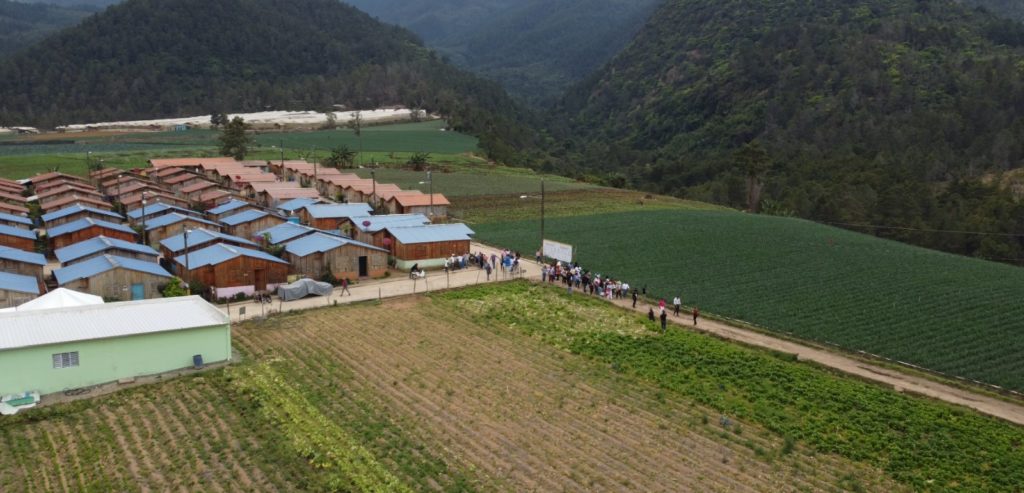
Joint strategy
During the course, the conclusion stage of the “Joint Strategy for Strengthening Sustainable School Feeding Programs in Latin America and the Caribbean (LAC) – safe environment during and post pandemic” was also carried out. It was a short course on food handling and food safety issues.
Paola Barbieri, a project analyst for the Brazilian Cooperation Agency (ABC/MRE), explained that the strategy was promoted by the South-South Brazil-FAO and Brazil-UNDP Trilateral Cooperation programmes. Eleven countries were supported by the strategy: El Salvador, Guatemala, Honduras, Paraguay, Peru, Dominican Republic, Belize, Grenada, Guyana, Saint Vincent and the Grenadines, and Saint Lucia.
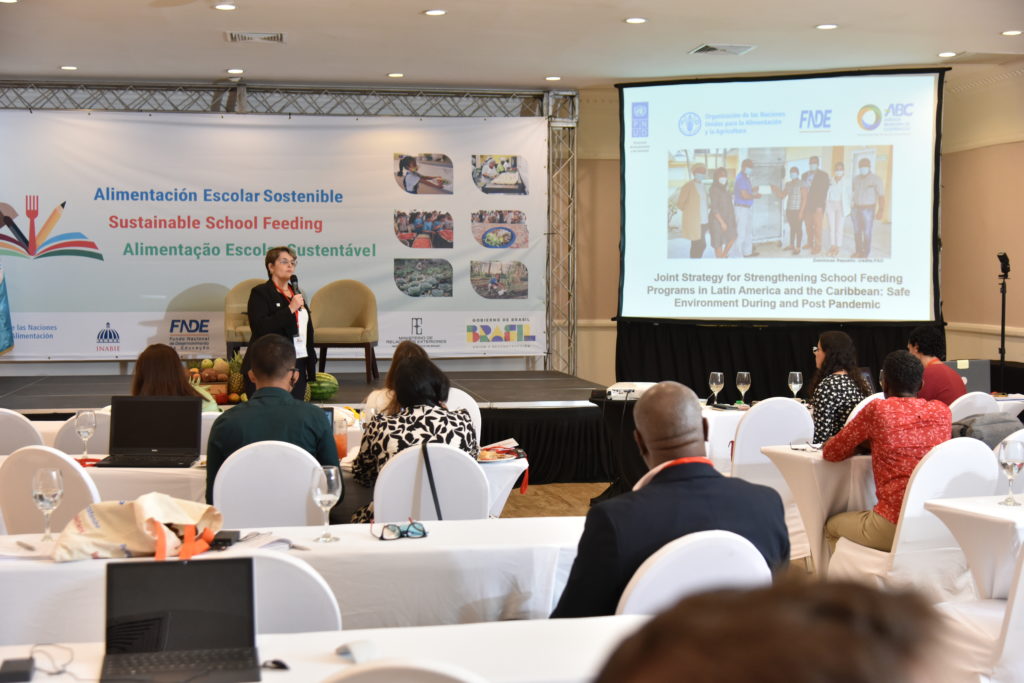
The Strategy was divided into two phases. The first dealt with the management and provision of approximately 600 kits in 11 LAC countries and the second was the training of national technicians in safety, hygiene, infrastructure, handling and quality of food preparation, carried out in the Dominican Republic.
Deborah Bosco, coordinator of food and nutrition security at FNDE, presented good practices in handling food at school and the importance of adequate infrastructure to offer the best quality food to students. She also assured the institution’s commitment to strengthening the food policy of the countries of the region.
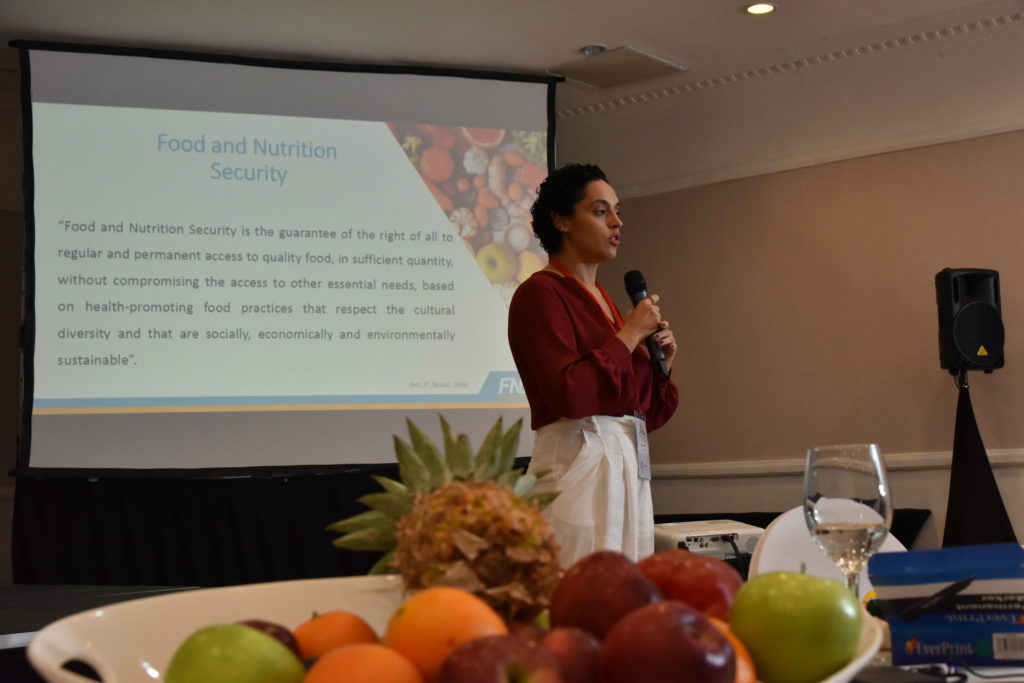
Lessons learned
For Nicole France, chief nutritionist at the Saint Vincent and the Grenadines Ministry of Health, Wellness and Environment, the importance of food and nutrition education was the main lesson learned. “It is important that all stakeholders – students, teachers, cooks, directors, farmers – see and understand how nutrition education is crucial for the life and future of children.”
“We were able to see the impact of school feeding in the field, in dialogue with students and family farmers,” said Mahendra Phaghwah, breakfast programme’s coordinator of Guyana’s Ministry of Education. “School feeding does not discriminate and it is not a vulnerability programme, school feeding is for all”.
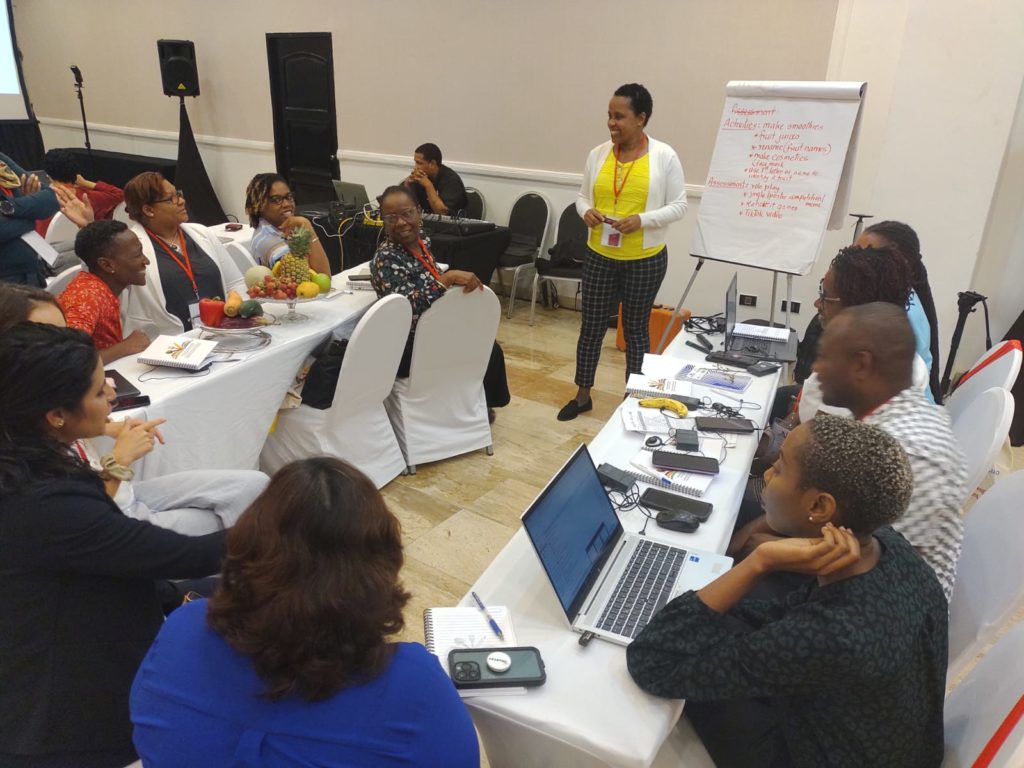
What drawed the attention of Latoya Smith, FAO’s school feeding coordinator in Trinidad and Tobago, was seeing the implementation of school feeding committees in the schools with the participation of students and families. “I saw here a glimpse of the future into what is possible mainly in terms of having people from the community having ownership and being a part of the process within the schools. So I see that as something that we can bring back locally and try to implement”.
For Bertland Bates, from the Jamaican Ministry of Agriculture, the experience of involving family farmers in school meals and the infrastructure of schools to offer it were the two topics that stood out the most. “The involvement of the community, of the producers, of the teachers, of the families, is fundamental for the success of school feeding in any country”, added Yolanda Gongora, director of education of the Ministry of Education of Belize.
The coordinator of the school feeding project of the Brazil-FAO International Cooperation, Najla Veloso, assessed that the mission promoted a space for dialogue and exchange among the Caribbean countries. “It was an opportunity to call on sister countries to think together how we can build a better continent and world, where all students eat, learn and improve their health conditions, moving the regional food chain with family farming.”

